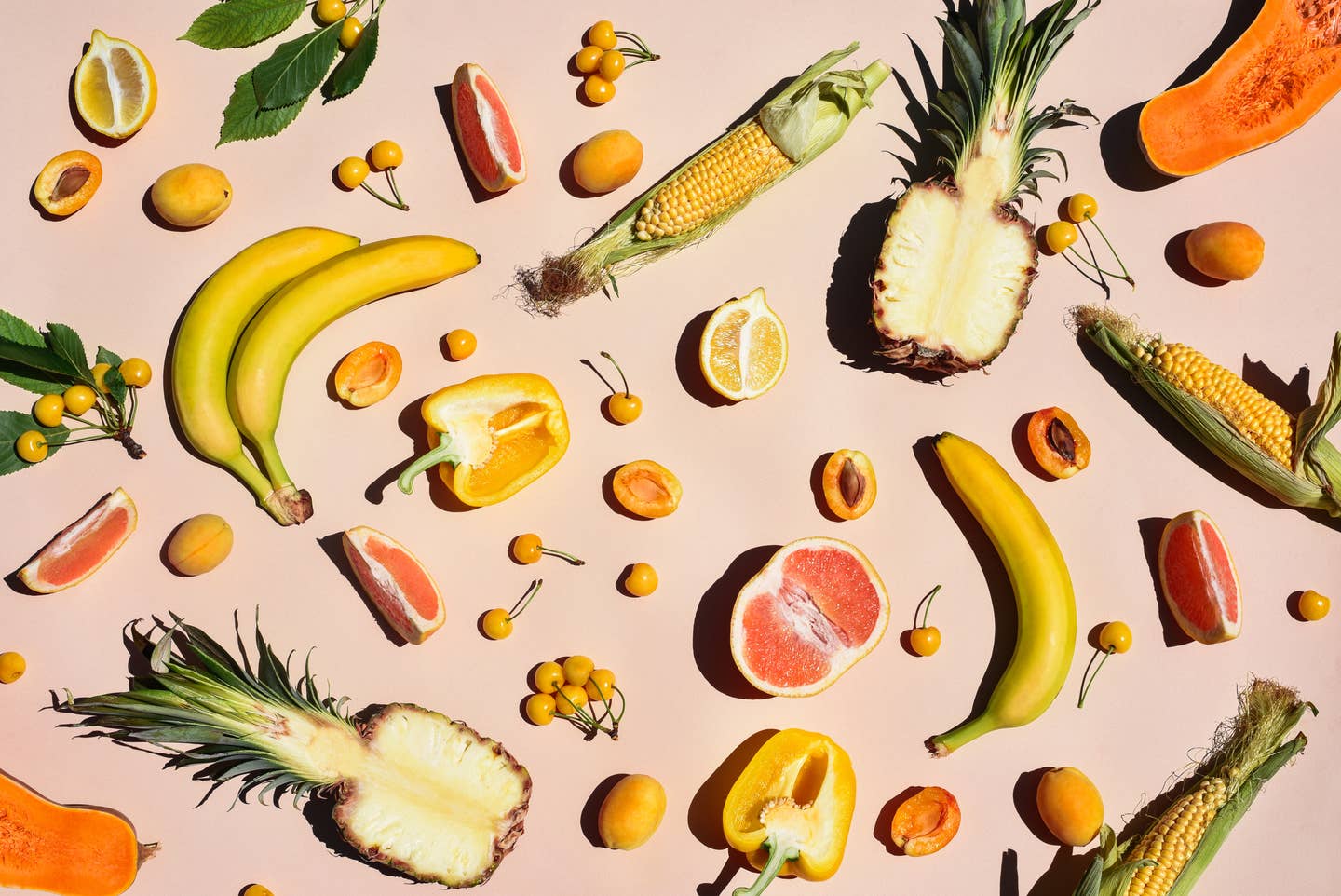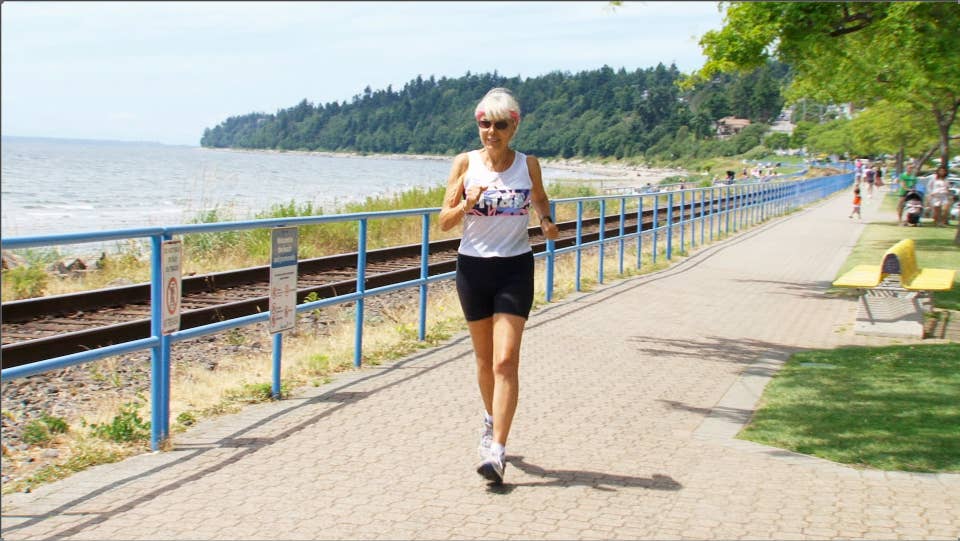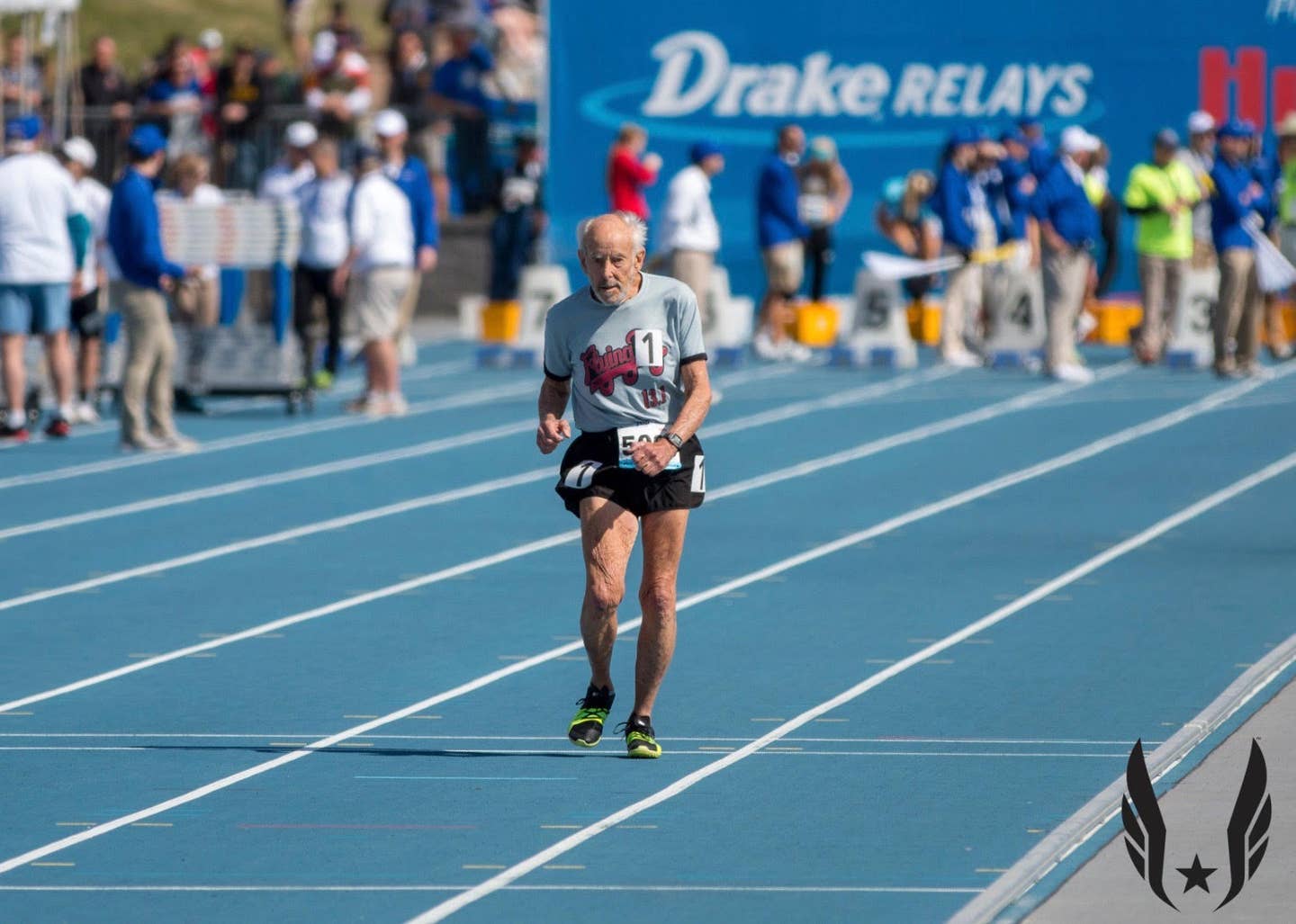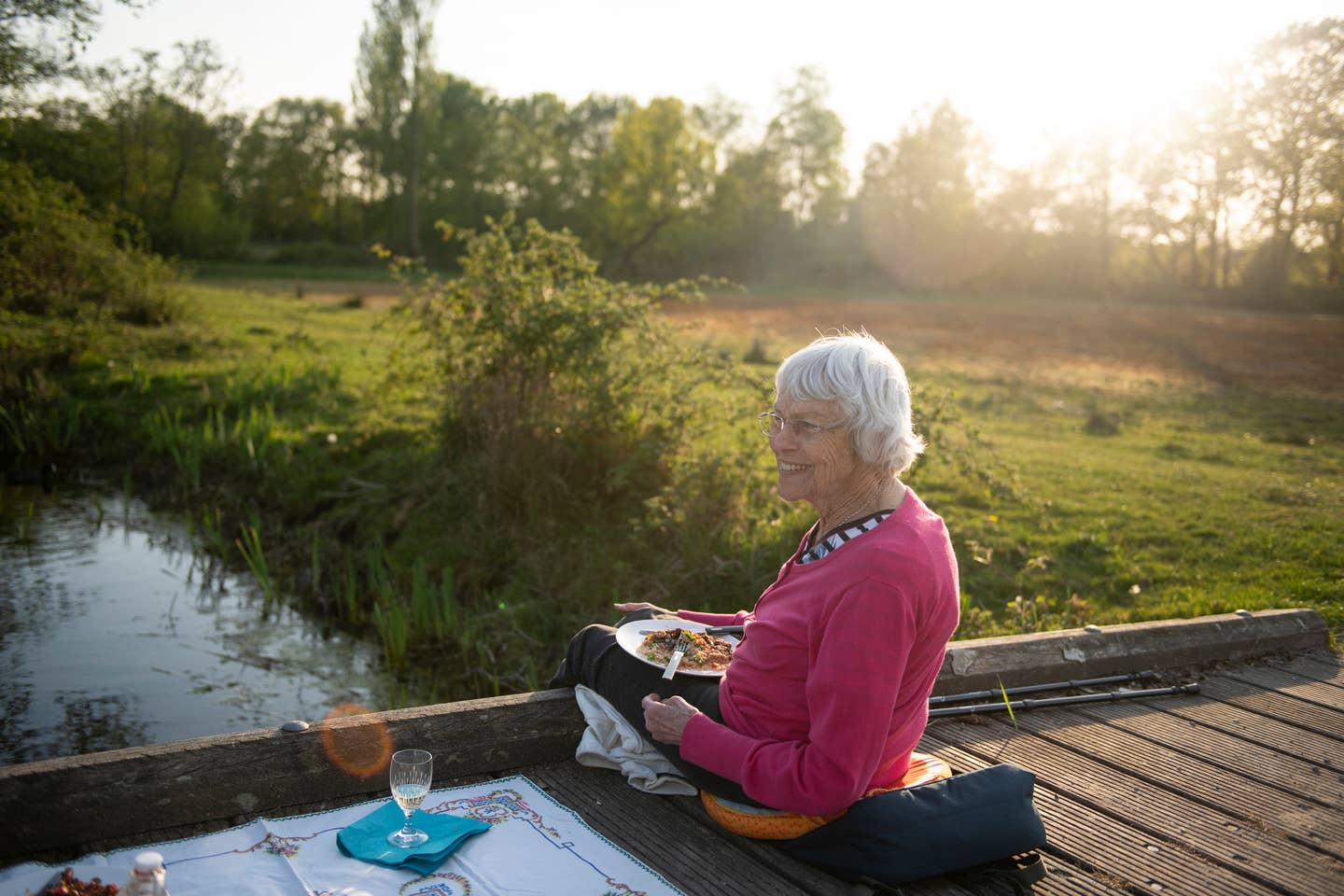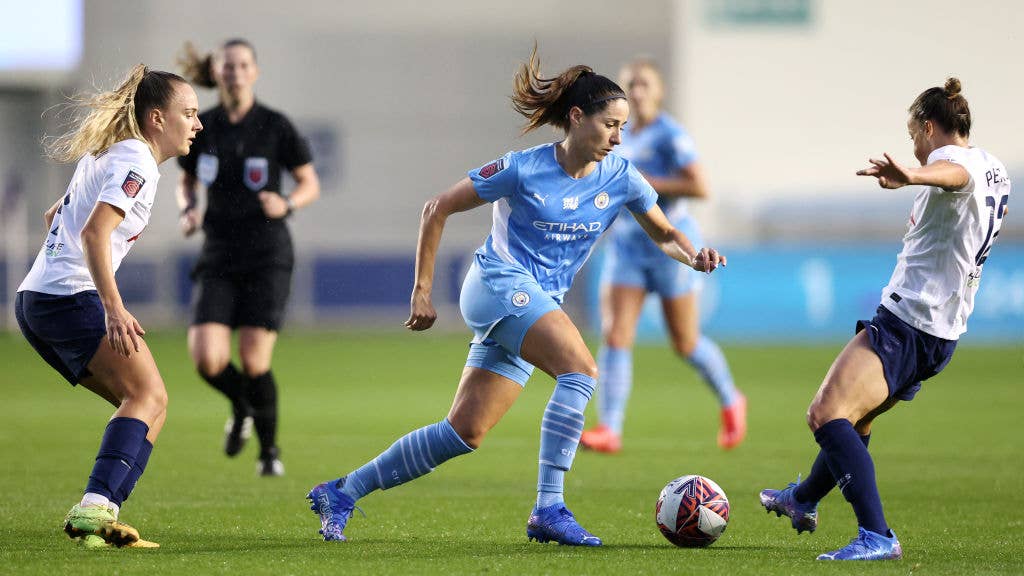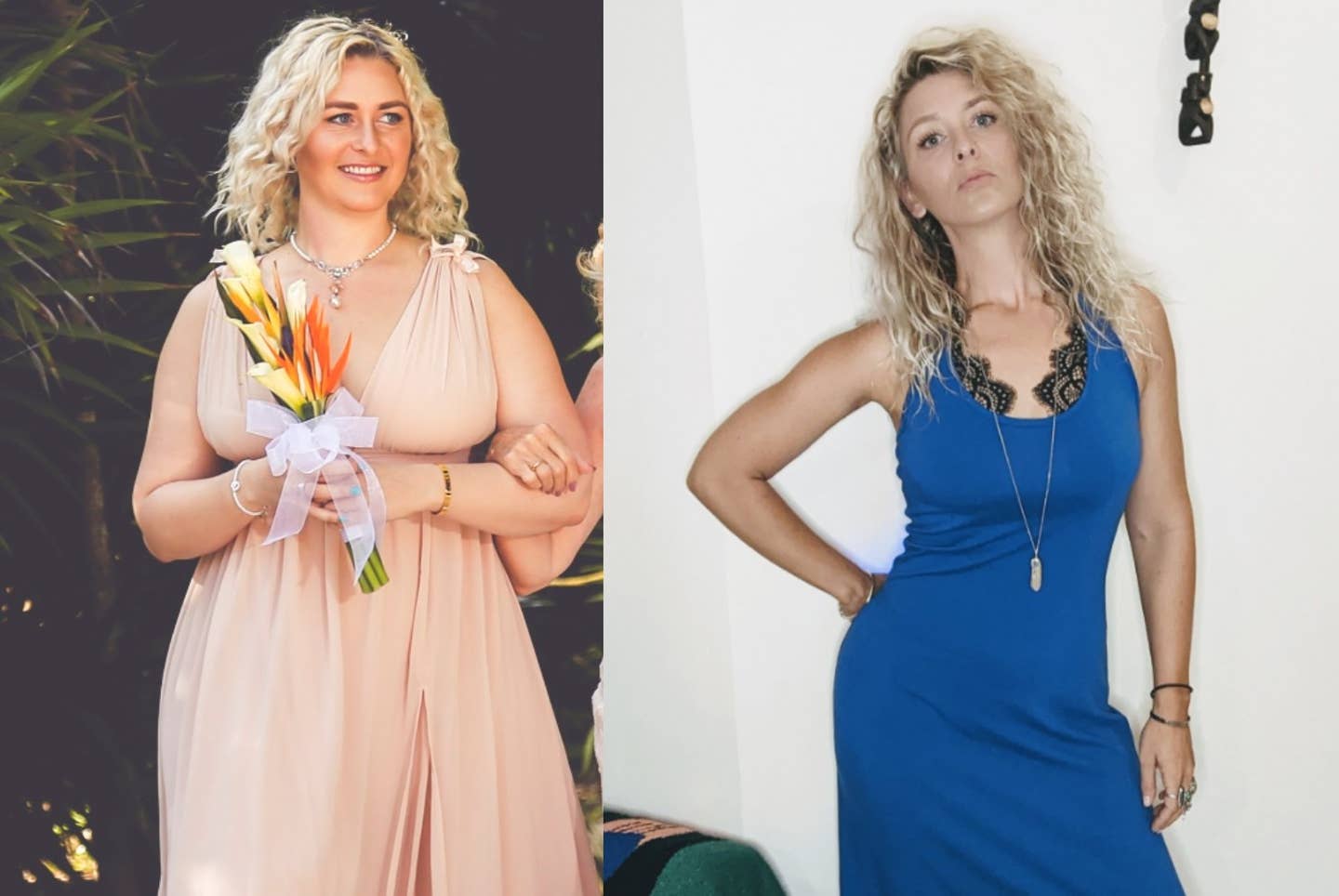
A Vegan Diet Allowed This Woman to Transform Her Life After Trauma
Athena Simpson underwent life changes with her career, her partner, her living situation all at once, and she was able to make the changes that she needed to get healthy, take care of herself, and prioritize the things that mattered most to her.
Athena was on a familiar path, experiencing the usual ups and downs of balancing work, play, staying healthy, and getting ready to welcome her first baby when she began to feel overwhelmed and burnt out juggle everything all at once. However, she didn't know the despair that was ahead. At her 12-week checkup, Athena received the traumatic, news at her that the doctors could not find a heartbeat. She had miscarried. As hard as it was to prepare for life with a baby, it was even harder to imagine life without one. After that, Athena says she felt "depressed and alone, since most women don't talk about it, but it was a very long road to try to get my body back." This was not in the time when celebrities shared their tragic feelings around miscarriage and she felt utterly alone.
"My miscarriage was when I stopped taking care of myself. I wasn't exercising, and I spent hours lying in bed, eating a ton of junk food on the weekends" Athena recalls. She had a joyful childhood in LA and then fond memories of living in Europe after college, where she had gone on a health kick, cutting out alcohol and dairy. She felt like she was at getting healthier while eating mostly plant-based foods. Back in LA, surrounded by veggie-friendly food and a legion of vegan friends. She went pescatarian, inspired by the documentary Earthlings, then decided to cut out fish, eggs, and dairy, since she realized she didn't want to contribute to the cruel treatment of animals.
During the first six months of eating beans, vegetables, fruits, and legumes, "I noticed that I didn’t get sick as easily as I had before, and if I did come down with a cold, I recovered a lot faster. I also started noticing that my hair and skin started feeling stronger and healthier, and my hair was growing more quickly. If you look back at pictures comparing how I looked before I went vegan and now, it’s almost like I’ve reversed my aging. I look a lot younger now."
Having a miscarriage sent her into a downward spiral, of not taking care of herself
When she got pregnant she kept up her healthy diet, but then had to endure the pain of her miscarriage and it derailed all her healthy lifestyle when depression et in. A friend suggested she try an acrobatics class, which is called Aerial Silks, a cross between actual aerial acrobatics and dance, all done while hanging from fabric sheets that require major arm and core strength. Sh decided to do it, just to get her mind off of things.
Athena went to a few beginner classes and thought it seemed too difficult, so she stopped going. Instead, she put all of her energy into her marketing job, entertaining new clients out for dinner or drinks. On weekends, Athena gave herself permission to order vegan take-out food and just lay in bed, which ultimately made her feel worse.
Three years went by like this, of undiagnosed depression, which caused her relationship to end and Athena realized that all she wanted was to be happy and healthy again. She told herself: "I should probably stop drinking because I know that it's a depressant and I want to feel like myself again."
She decided to get it together. Her vegan diet was the beginning of turning it all around
On January 5th, 2019 she went sober and within just six months she had lost about 44lbs she’d gained from overeating and drinking during her down years. "A lot of lifestyle choices contributed to the weight I'd gained. But when I gave up alcohol and found happiness, the weight dropped off," says Athena.
Six weeks after giving up drinking she went back to that Aerial Silks studio, this time with a better mindset, and decided to train at it. She went frequently and ended up falling in love with the art of dancing this way since it allowed her to just be herself without the burden of judgment. "The process gave me so much confidence," Athena said. It became a creative outlet outside of my work situation."
After several months of not drinking and training again, in August 2019 she decided to make a big life change: She sold everything, in order to travel the world eating the most delicious vegan foods, and eventually, she found a circus collective in Indonesia where she trained and lived. During her travels when she was eating healthy food and occupying her time with the things she loved, she was ready to help others and decided to come back home and write a book about her journey.
Athena's advice to people out there who are struggling: If you’re looking for quick weight loss, try removing alcohol and going plant-based. Focus on not drinking first, rather than trying to follow a diet or watch what you’re eating. And if you can, find a way to move your body that you enjoy, rather than doing an activity solely for the purpose of weight loss.
"I’m eating whatever I want, and I’ve lost 44 pounds and kept it off." She did point out that she naturally started craving more whole-foods and less processed foods because of the increased energy and confidence that came with not drinking and eating healthy while training.
The Beet video chatted with Athena, who was at her home in Tulum Mexico, where she's been busy experimenting with local vegan food like zucchini flowers, practicing Aerial Silks at a local studio, and editing her new book, which is about self-care through productivity. She shared her heartfelt story about how her vegan diet and sobriety healed her depression and opened doors to new experiences. In the interview, Athena shares helpful mantras and advice that can help speak to anyone who needs mental clarity.
TB: Why did you go vegan in the first place?
AS: It’s kind of funny because I was such a meat-eater growing up. I always had the same excuses everyone gives, “oh, these animals were made for us to eat them, oh but bacon,” all that kind of stuff. I have been bio-hacking since I figured out how I ate could impact my health, so I cured myself of a couple of diet issues.
In 2015, I decided to cut meat out just to see how it would feel. I decided I would do it until I started craving it again, but I never craved it. I began to do research and watch films. I did the vegetarian, pescatarian thing for maybe sixth months. I saw Cowspiracy and a few others and began to understand rationally, and then I watched Earthlings and cried the entire film hysterically. That was it for me. The next day I decided even though I had no idea how to go vegan, I couldn’t contribute to that industry. I tell the first part of my story that it didn’t start as a compassionate decision. It was more than the final thing I got to was how I had been this removed from what’s going on on earth. I went vegan five years ago, on October 11th.
TB: What kind of results have you seen after going vegan?
AS: It’s interesting because weight loss didn’t come until this last year and a half when I gave up alcohol. When I cut out meat, I thought I would be craving it, and I didn’t--that I found interesting. I thought I would have these intense cravings for meat, and that would be the hardest thing.
Before I went fully vegan, I did the pescatarian thing for the first six months, and I found it difficult because I wasn’t replacing anything. I just cut out a part of my diet but when I went vegan, I found all these ingredients available to me that I had never considered before: lentils, legumes, and all these different fruits and vegetables. I was overwhelmed, so I automatically started eating more fruits and vegetables.
As time went on, I noticed that I didn’t get sick as quickly as I had before, and if I did get sick, I recovered a lot quicker. I also started noticing my hair and skin started getting better. My hair was growing more quickly. If you look back at pictures before I went vegan and now, it’s almost like I’ve reversed my age. I look a lot younger now. It made an even more significant impact when I stopped drinking because when you’re eating a plant-based diet and not poisoning yourself with alcohol, you’re super-human. I was able to pick up ariel silks at 35 after never doing any consistent exercise. It’s so hard on your body. You’re putting your muscles through tons of stress, you get bruises all the time, but because I eat this way now and don’t drink, my body recovers so fast. If I get a bruise, it goes away in a day. That had never happened to me before I made the switch.
Here's my advice: If you’re looking for quick weight loss, removing alcohol and going plant-based, you don’t have to follow a diet or watch what you’re eating. I’m just eating whatever I want, and I’ve lost and kept off 44 pounds.
TB Why did you decide to go sober?
AS: I just wanted to do a detox to get back on track. I was pretty depressed, and things weren’t feeling good in my life, so I decided to stop drinking this thing that I know is a depressant. I removed that, and I got into ariel silks. That was January 5th, 2019, and I lost weight I had gained over the last few years within just four months. When I went vegan initially, I didn’t have the weight to lose. I don’t want to tell people that just by going vegan, they’ll lose weight. I was in a healthy place when I went vegan emotionally, but I got into a difficult work situation over the years. I wasn’t taking care of myself. I wasn’t exercising. I was going to all of these “networking events,” where I would maybe have one extra glass of wine, which gave me permission just to eat take out and not exercise all weekend. A lot of lifestyle choices contributed to the weight I gained that I later lost when I gave up alcohol and found happiness.
TB: Did a vegan and sober lifestyle help open your mind to new experiences, like ariel silks?
AS: It’s personal, but part of the reason I was depressed was that I had a miscarriage at twelve weeks, and not long after I went vegan. I don’t mind sharing my story because I wish I knew more women who went through my experience and talked about it. It was such a horrific process, and I felt very alone because so many women don’t talk about it. My partner and I thought we would have a child and found out that I had miscarried at the twelve-week scan. After that, it was a very long road to try to get my body back.
A friend told me about a trial class down the street from where I lived in Southeast London and encouraged me to go. I’d grown up dancing, and it was such an expressive way of using your body. At the trial class, they were smart because they were doing things that didn’t require a bunch of body strength. Then, after I went to the class, I realized it was hardcore exercise. While I was going to the class, I was only going once a week, and I wasn’t doing any other exercise. Sometimes I would go to class with a little bit of a hangover, and I wasn’t making any progress. I ended up quitting and getting fully absorbed in work, and my depression got worse.
My miscarriage was the catalyst for why I wasn’t taking care of myself, not exercising, and lying in bed, eating a ton of food every weekend. When I finally had enough during the holidays in 2018, I realized I just wanted to feel healthy again. I fixated on the idea of feeling super-human. I remembered how amazing I felt when I was following the Candida diet because I couldn’t drink. I wanted to feel that way again. All of the stuff that goes with being a woman in your mid 30’s–my relationship had ended, I had no kids, I have this intense career, but I had stopped taking care of myself.
One day, I decided I wanted to feel better again. I decided to quit drinking, and the weight dropped off. About six weeks later, I decided to try Aeriel Silks again because it was so hard when I wasn’t in the right mindset. I thought if I tried it also, I’d like it, and I ended up falling in love with it. The process just gave me so much confidence and a creative outlet outside of my work situation. I ended up deciding to sell everything and travel the world. I found a circus collective I could train and live with, my first stop after leaving London.
TB: What are you working on in your career now?
AS: I was in Panama during the lockdown to visit my parents and write my book, which I’m now editing and it should be published in January. The book is called Unrestricted, and it’s about how to create a way of taking care of yourself using productivity skills to try to disconnect from the idea of “doing what we think we should be doing.” I’m trying to redefine what success looks like so we can escape from the myth that success means earning a certain amount of money, or having kids, or owning a house. The goal is to break down that idea while we’re practicing self-care.
I’ve also been working a lot on my Unrestricted Project. I started a podcast that tells the stories of amazing women who live their lives differently just to articulate the idea of what it looks like if we redefine the concept of success. I’ve talked with everyone from female menstruation empowerment educators to a woman that uses pole dancing to help women overcome sexual trauma. It’s just these cool women are going outside of the norms. The book is a blueprint on how to disconnect from this idea of success we’ve been inundated with and instead, connect with ourselves so we can make sure we’re taking care of ourselves while feeling productive and are doing the things we actually want to be doing.
TB: What kinds of things are you trying to accomplish in your new life?
AS: I think that well-being in the workplace will become more front and center. People are burning out and changing jobs all the time because they believe that will make them happier. It’s not sustainable for businesses to have their employees feeling horrible and leaving. I think that’s going to be a big topic down the road.
I always tell people if you don’t have control over yourself, someone or something else will. Many people see productivity skills and structure as restrictive, but the more you take control over your life and situation, the more freedom you will have. Other people tell you what to do and have ideas about whether you need to be buying a house or getting married and it ends up all becoming a self-made prison. When I left, I said for the first time in my life, “I’m going to see what the universe tells me, rather than basing my entire life around my career, which has left me so burnt out.”
That’s how the Unrestricted Project came to be. Now, I’m working on helping other people learn what I now understand, using something I’d learned and been teaching. I’ve been running workshops and teaching people productivity skills, but it was focused on getting better at work. Now I can help people take better care of themselves.
There are simple things like communication and boundaries I was already teaching at work. As women, we end up taking on more and saying yes to things when we should be saying no, and our male counterparts don’t even have to say no. It’s not even asked of them. We do all these things that when we become conscious of them and work on them. We can help ourselves feel better. That’s what I focus on doing now in different ways. The book is the main component, but I’ve been doing individual and group coaching programs. I’m passionate about helping anyone, but women, particularly, break free from the self-made mental prison we’ve created for ourselves.
TB: What advice do you have for anyone who feels stuck or unhappy with their life choices?
AS: The first question I would ask is whose idea of success is it? And sitting with that. Is it something they’ve been told through media, parents, or friends? Is there anxiety coming up from what I’ve been told I have to achieve? Am I saying I need to achieve these, or do I actually want to achieve these goals? When you trade the word “need” for “want,” you can unpack what’s really driving you.
I think it’s essential to go through that process of visualizing and dreaming. If I were to wake up in five years, what do I see when I look out the window, who I am with, what am I doing, and what does my day look like instead of I want this amount of money and this car. By focusing on the feelings rather than the outcomes, it’ll begin helping you get out of that mindset.
TB: What would you tell someone who is starting their vegan journey?
AS: When people experiment with the idea of starting, most people get hung up on is worried about the food not tasting good and not getting enough to eat. You need to find opportunities to get people over those humps if you’re trying to become vegan or incorporate more plant-based foods. Find really good tasting plant-based foods and eat lots of it. That will help you get over the hang-up of that you somehow deny yourself something or that you won’t enjoy eating this way. There’s so much incredible vegan food in the world. I’ve been traveling the world, and I’m so excited to try vegan food in every new place. I used to report on food industry trends in a former life, and plant-based was always the trend I was most excited about.
There are so many amazing things happening. It’s just opening up your mind ... The old way of eating is so dull, it’s what everyone else is doing, and there’s no imagination to it. I would tell someone to look at it as an opportunity to be excited about food again.
I would also say it’s essential to make it easy on yourself. If you’re in a place where you can use tools like getting recipe boxes delivered or finding places to give you ideas, make it easy for yourself and do that. It became so much easier for me after I got the first plant-based recipe box offered in London from a company called Mindful Chef. I still use some of the recipes from it to this day. It just helped me to learn different ways to make vegan food.
TB: What advice would you give to someone thinking about giving up alcohol?
AS: It was interesting because when I stopped drinking, I recognized all of the things that happened when I went vegan. When you make a good decision for yourself, you’re holding up a mirror to the people you’re surrounded by, and they might not want to look in that mirror. People get uncomfortable around vegans because everyone knows how we treat animals isn’t moral, but they don’t want to admit that. It’s the exact same thing with drinking. 87% of Americans have consumed alcohol as adults and over half still drink. When we have this societal norm of everyone drinking, and you decide to step out of that, it makes people uncomfortable because we all inherently know it’s an addictive poison. That’s how our body interprets it.
The people that are telling us to moderate are the ones that make the substance themselves. They’re marketing the idea to us that we can have control over this addictive substance, but it’s like telling a fly to fly into a Venus Flytrap and try to get out. There is so much conditioning we’ve received around alcohol. The other thing I would say is not to think of it like you’re trying to quit forever.
If you’re interested to see what not drinking feels like, just give yourself a little challenge to go 30 days without alcohol. If it doesn’t have any power over you, and you have complete control over it, you should be able to give it for 30 days without a problem. That’s still a challenge for some people, especially because there’s so much wrapped up with drinking. We’re told it’s our way to relax and have a good time, so it’s a massive part of our lives. Just try 30 days and see how it goes for you, rather than trying to give it up forever. Anyone can do a 30-day challenge. I started with just trying to give it up for 90 days.
I figured it would be 90 days, and I ended up giving it up forever. Why would I give up all this fantastic stuff that’s happened to me since I quit drinking? I’m not very good at moderation, so it’s very much all or nothing for me. I’m going to torture myself sitting in a bar trying only to have one. Instead, I just don't drink at all, and that way, it’s not taking up any brain space. I feel good. I’m still doing silks.I don’t even know how I would find time to drink without affecting my training. There are more important things to me now. I recommend a book called The Unexpected Joy of Being Sober, and the author’s hilarious. Quit Like a Woman is another that I know many women enjoy. This Naked Mind is a book that talks about alcohol’s effect on the body, and all of the lies the industry has told us.
TB: How has your social life changed after you stopped drinking?
AS: You learn a lot about your friends and relationships when you go through something like this. Most of your good friends will support you in doing something good for yourself. A couple of people might have issues going on themselves and won’t be happy about you bettering yourself. It forces you to question if that’s someone who should be in your life if they’re not going to support your decision to do something good for yourself.
]Initially, people will be uncomfortable because it’s like a mirror. They’ll say, “Oh, come on, you deserve one; just have one.” That’s the hardest thing for people: the worry that they won’t be fun, or they’ll be boring, or people will make assumptions about them. Actually, when you don’t drink, and you’re at an event where everyone else is, it’s fun until the point where you’re speaking the same language anymore. That’s a little bit of a bummer, but if you decide to leave, the people you’re with probably won’t remember anyway. They’ll be more worried about if they did something crazy or said something they shouldn’t have. They’re not thinking about the fact I wasn’t drinking; they're more worried about what they said to me.
I think if you can just be empathetic with people and say, “Hey, I’m not drinking, but you do you. I’m not making any judgments.” It’s the same thing with going vegan. The more you can be emphatic and understanding people's processes rather than ramming information down their throat, and they might be able to start asking questions about veganism.
I don’t preach to people, I just live my life, and people see the journey I’ve taken, and they want to know more. When you go to an event sober, you can see people’s drinking behaviors, but instead of calling them out on it, just take it in with no judgment. Then, that person who has a drinking problem is more likely to come to you because they know you stopped, and they can stop too. Just by being a strong, warm-hearted person, you’re able to help people by showing them that there’s a different way.
TB: To conclude, do you have a mantra?
TB: I have a few. When I stopped drinking, I replayed this one over and over in my head:
You can have your best life, or you can have alcohol. That one just blew my mind. The other one I love that I mentioned earlier is if you don’t have control over yourself and your time, someone or something else will.
More From The Beet

